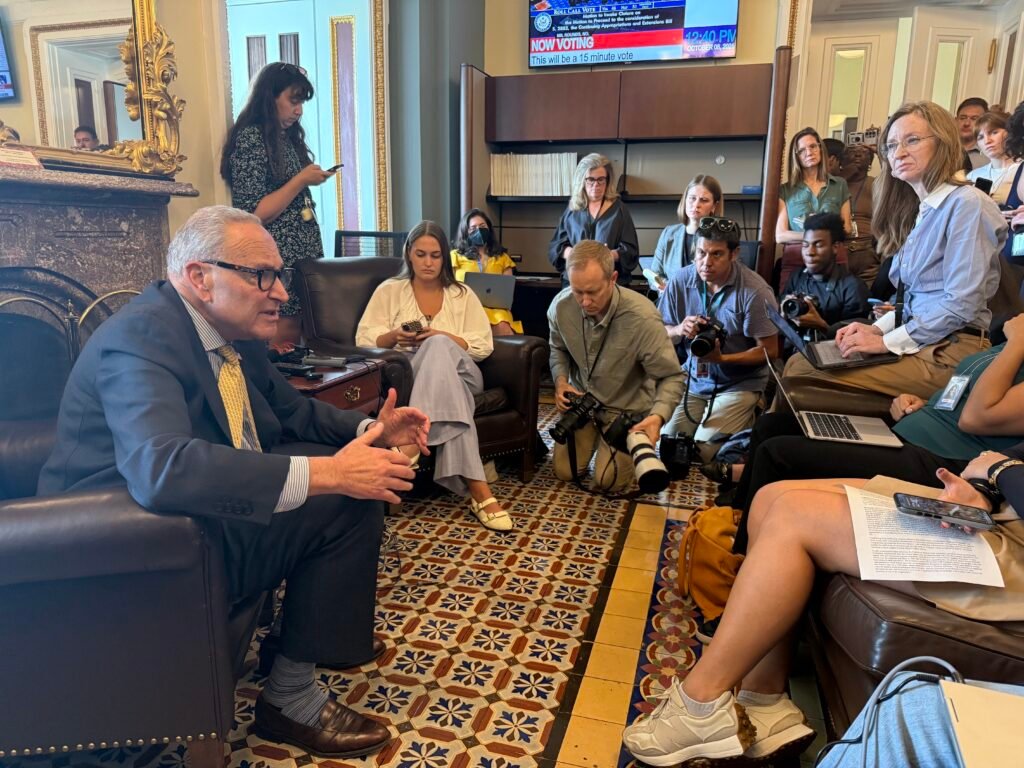Justice Barrett’s New Book Promotes Listening in Law
In a climate where everyone is eager to voice their opinions, Justice Amy Coney Barrett’s new book encourages a different approach: “Listen.” “Hearing the Law” isn’t just a title; it embodies her judicial philosophy, reflects a personal ethic, and challenges traditional thoughts on the role of judges within American democracy. Barrett asserts that judges should pay attention to the law’s text rather than simply represent it. After engaging with her book, it seems clear to me that she embodies this principle.
Rather than dictating what the law should be, Barrett emphasizes understanding the language that elected officials have endorsed. Instead of reshaping the Constitution to fit her views, she listens to its text and the historical context of its interpretation over the past 250 years. While she certainly breaks new ground in many respects, she doesn’t stray from the path traditionally taken by Supreme Court Justices. She shows a profound respect for the legacy of the judiciary, acknowledging that it’s an institution that predates her and will likely endure long after she’s gone.
When senators speak of public service, I tend to see it skeptically. Even well-intentioned individuals often have a tendency to promote themselves. It seems like a prerequisite for political office. Some judges also seem to have aspirations for advancement. Just as senators might envision a future presidency when they look in the mirror, many judges likely picture themselves in higher judicial positions.
But Judge Barrett’s account of her own journey feels distinct. While her appointment was undoubtedly exciting and fulfilling, it came with significant sacrifices. She took on the role out of respect for the system, a love for her country, and a genuine calling. Though others considered her a likely candidate, Barrett didn’t actively seek the nomination or structure her life around becoming a judge. She cherished her educational pursuits, especially the balance of family life. As she mentioned, her experience at the Court of Appeals helped her realize that “everyday life was not divided into ‘law’ and ‘parenting.'” They happened simultaneously.
For Barrett, a position on the Supreme Court wasn’t her ultimate goal. The transition brought challenges, including relocating her family, a loss of personal privacy, less flexible scheduling, and increasing security risks. She described feeling a knot in her stomach upon receiving the interview invitation, and the metaphor of “burning a boat” was used by her and her husband to signify their commitment to this new chapter. I genuinely believe her when she says that her dedication to serving her country and upholding the Constitution, regardless of the personal cost, drives her forward. When asked if she enjoys her job in an interview, she humbly stated that she feels honored by it.
The book’s tone captures the questions Barrett often fields from friends and acquaintances about the court’s function. It serves as a good introduction to the framework of our constitutional system and presents originalism as a principled method of legal interpretation.
I find her practical insights into court operations quite valuable. Even though my ties to the court have weakened over time, I still encounter these inquiries frequently. There’s a genuine desire among Americans to grasp how this essential institution operates, and this book offers practical details that are hard to find elsewhere. Barrett candidly admits, for instance, that she hasn’t read every court brief for a case. Practicing lawyers know that not all briefs carry much weight, a fact rarely acknowledged publicly.
Additionally, she shares her strategy for minimizing political bias by considering different policies and litigants before her. This perspective is beneficial for advocates aiming to illustrate how their arguments could resonate even with those holding opposing views. Without such examples, opposing parties and judges might create comparisons that reinforce their own interpretations of the law.
Always in the role of educator, Judge Barrett dedicates a significant portion of her book to a thorough explanation and defense of originalism, as well as a detailed overview of our constitutional framework, including the Constitution’s text in an appendix. Although her style differs from that of her mentor, Justice Scalia, the book showcases that Barrett aligns with his philosophy on judicial responsibilities. Her passion for elucidating and defending originalism echoes Justice Scalia’s commitment to this judicial perspective throughout his career, in both print and various public forums.
Justice Scalia once remarked that to be an effective judge, one must “accept the fact that you won’t necessarily like the conclusions you reach.” Barrett clearly embraces this belief. In “Hearing the Law,” she argues that judges should serve the law rather than dominate it, emphasizing the importance of being listeners instead of speakers. As Barrett continues to influence American law in the years ahead, her book offers a valuable glimpse into judicial thought processes, reminding us that perhaps the most crucial task for a judge isn’t to speak, but simply to listen.







